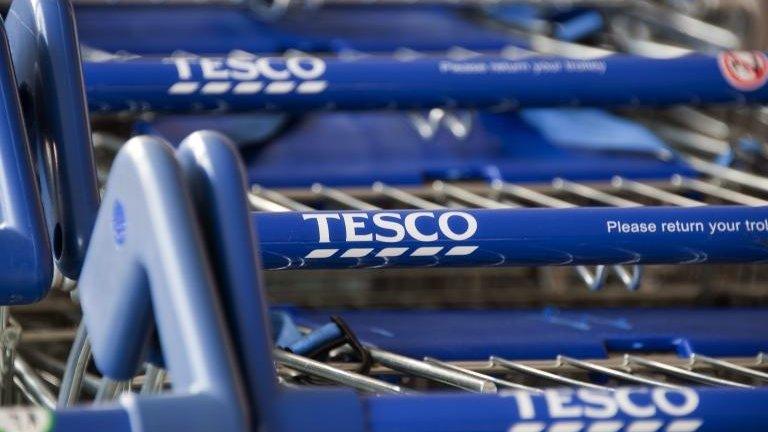The hidden world of supplying a supermarket
- Published
The suppliers actually pay the supermarkets to get their brands in the best places
Stack it and sell it. What could be more simple when it comes to the world of the supermarkets? But in this multi billion pound industry, there's a complex relationship between the retailers and the companies who supply the many products they sell.
The accounting scandal at Tesco brought the issue into the limelight, and highlighted just how reliant it, and the other big supermarkets, are on supplier income.
Its £250m profit overstatement centres on payments from suppliers, and how that income was recorded on its books, an amount that would have accounted for around a quarter of its expected half year profits.
Suppliers compete to get the supermarkets to feature their products prominently. And they'll pay handsomely to get the best place on the shelves. The real sweet spot is the end of the aisle.
"Suppliers can see their sales multiply about tenfold during the period they're there. It's not uncommon for them to pay hundreds of thousands of pounds, knowing that they're generating the sales with which to pay for them," says David Sables, founder of Sentinel Management Consultants, a business that advises suppliers on how to negotiate with retailers.
And that's not the only thing suppliers pay for. There are a host of different fees and charges, many of them linked to performance.
Suppliers pay for promotions and usually give a discount or rebate to the supermarkets if targets are met. It's all part of what's known as commercial income.
It's nothing new or illegal. These payments have been widespread across the industry for decades.
UK food supply chain
3.6m
People employed in food supply
13%
Of national employment
-
£97bn Gross value of food supply chain (2012)
-
300,000 Agricultural enterprises involved in food supply
-
7,400 Food processing businesses
-
British retailers don't publish how much money they receive from commercial income but the declared income from a number of big American supermarkets gives a clue.
According to Fitch, the credit rating agency, the payments are the equivalent to 8% of the cost of goods sold for the retailers, equal to virtually all their profit.
It could be a similar picture here.
Duncan Swift, a partner at Moore Stephens Food Advisory Group, knows his way around UK supermarket balance sheets.
He is a chartered accountant who specialises in helping suppliers in financial distress, and has also given evidence for the Competition Commission's investigation into the groceries market, published in 2008.
'Lucrative'
He conservatively estimates supplier contributions to be worth around £5bn a year to the top four supermarkets. But that sum is still more than they made in combined pre-tax profits last year.
"Over the years, it's become a very lucrative source of additional profits for the supermarkets.
You'd think the amount of price reductions that a supermarket can get through rebates is going to be nothing like what we as consumers spend at the tills and relatively you're right.
But in profit terms, at the margin, it's far more attractive for a supermarket to get ever larger supplier rebates than it is to encourage the likes of you and I to spend more money at the till, " he says
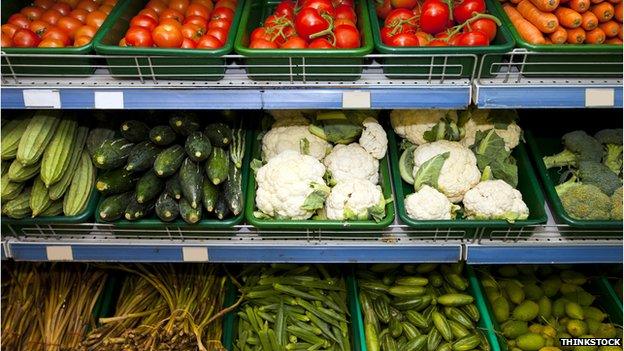
One estimate puts supplier contributions to the big four supermarkets at £5bn a year
For the big four, getting us to spend money has never been more challenging. Discounters like Aldi and Lidl have been stealing customers and consumers are changing the way they shop.
But in a market with next to no growth, are suppliers being seen as an easy touch for more contributions?
Transparency
David Sables from Sentinel says things are always tough, but they've recently got tougher as trading has gradually worsened for the supermarkets.
"There's constant pressure on these businesses to improve results, and as the pressure grows it can be particularly intense when they're suffering and their sales are not doing very well, and they're losing market share," he says.
"When you see that happening, you expect that to come with a phone call to their suppliers asking for a little bit more."
Suppliers I spoke to were too afraid to speak publicly for fear of being dropped by the big supermarkets. Duncan Swift says not all supplier relationships are bad, but he believes the supermarkets have been finding ever more sophisticated ways of getting more money out of their suppliers than before.
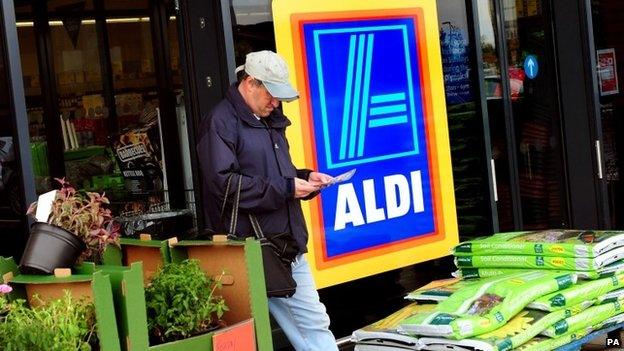
Discount retailers Aldi and Lidl are providing stiff competition for the "big four" supermarkets
"Significant deductions are being made from what suppliers are owed by the supermarkets without any explanation. I've seen short-notice order cancellations to try to force suppliers to put goods on promotion, to further reduce the price they supply to the supermarkets. And I've seen further demands for marketing and promotional costs [from supermarkets]," he says.
The supermarkets deny mistreating suppliers. They say they wouldn't be in business without good relations. Indeed, many suppliers have done incredibly well from shifting vast amounts of goods through the supermarket aisles. And some of the biggest brands are bigger businesses than some of the retailers they sell to.
The British Retail Consortium says regulations introduced in 2010 on supplier and supermarket promotions make it clear that they "must be agreed by both parties and cannot be required solely by the retailer on their terms".
For Tesco, how it records its supplier income has landed the retailer in serious trouble, with more than £3bn being wiped off the company's value, as well as putting it in the sights of regulators and politicians.
The city wants to know if Tesco took things too far, in order to prop up falling sales. That investigation is still under way.
But there are now calls, including from Fitch, for more transparency about supplier payments among all the big European retailers.
"Better disclosure would make it easier to spot errors, aggressive accounting practices or misuse, " Fitch said.
- Published5 October 2014
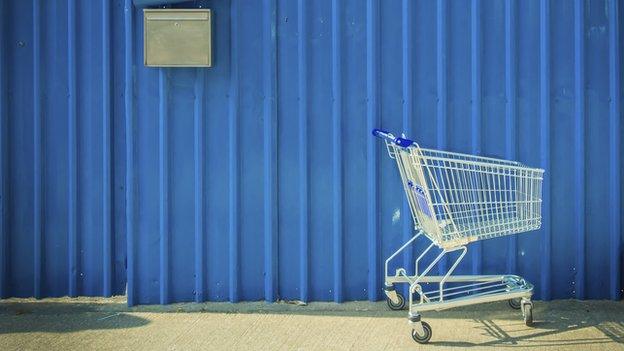
- Published14 October 2014
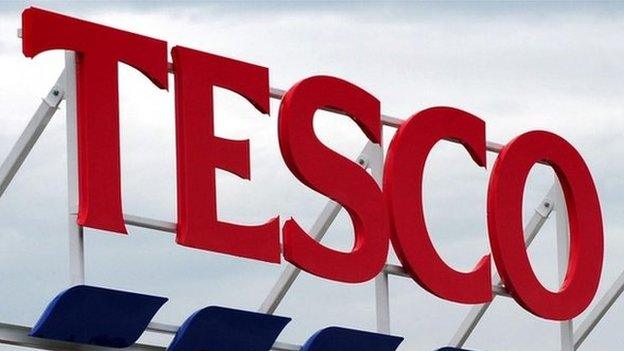
- Published6 October 2014
- Published1 October 2014
